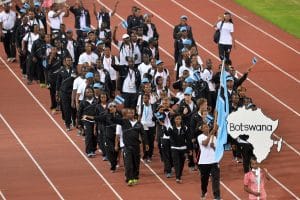Headlines
Botswana: A Journey from Ancient Origins to Modern Democracy

Botswana is inhabited by people of predominantly Tswana origin (collectively called “Batswana”) whose recorded history can be traced back to the 14th century. They are believed to be descendants of King Mogale who lived in the present-day Magaliesberg Mountains in South Africa. The Batswana migrated into the territory that is now Botswana from different directions and established several chiefdoms.
See population, official language and more…

Botswana
In the late 19th century, Botswana faced threats from the Ndebele tribes, the Boer settlers and the German colonialists who wanted to expand into its territory. To protect its sovereignty, Botswana appealed to Britain for protection and became the Bechuanaland Protectorate in 1885. Britain did not interfere much with the internal affairs of Botswana and allowed the Batswana chiefs to retain their authority.
In 1961, Botswana formed its first political party, the Bechuanaland Democratic Party (BDP), led by Seretse Khama, a prominent chief and nationalist leader. The BDP campaigned for self-government and independence from Britain. In 1965, Botswana held its first general elections and Khama became the prime minister of the self-governing Bechuanaland. On September 30, 1966, Botswana became an independent republic within the Commonwealth, with Khama as its first president.
Botswana has been inhabited by humans since the dawn of modern humans about 100,000 years ago. The San and Khoi peoples were the original inhabitants of this area and South Africa. They lived as hunter-gatherers and spoke Khoisan languages, noted for their click consonants.
From the 14th to the 19th centuries, various Bantu-speaking groups migrated into Botswana from different directions and established several chiefdoms, such as the Ngwato, Ngwaketse, Kwena, Tawana, Bangwaketse and Bakgatla. These groups formed alliances and confederations and engaged in trade, warfare and cattle raiding with each other and with their neighbours.
In the late 19th century, Botswana faced threats from the Ndebele tribes, the Boer settlers and the German colonialists who wanted to expand into its territory. To protect its sovereignty, Botswana appealed to Britain for protection and became the Bechuanaland Protectorate in 1885. Britain did not interfere much with the internal affairs of Botswana and allowed the Batswana chiefs to retain their authority.
In 1961, Botswana formed its first political party, the Bechuanaland Democratic Party (BDP), led by Seretse Khama, a prominent chief and nationalist leader. The BDP campaigned for self-government and independence from Britain. In 1965, Botswana held its first general elections and Khama became the prime minister of the self-governing Bechuanaland. On September 30, 1966, Botswana became an independent republic within the Commonwealth, with Khama as its first president.
Since independence, Botswana has maintained a stable democracy with regular elections and peaceful transfers of power. It has also achieved remarkable economic growth and social development, thanks to its prudent management of its diamond resources and its good governance. Botswana is considered one of the most successful African countries in terms of political stability, economic performance and human development.





